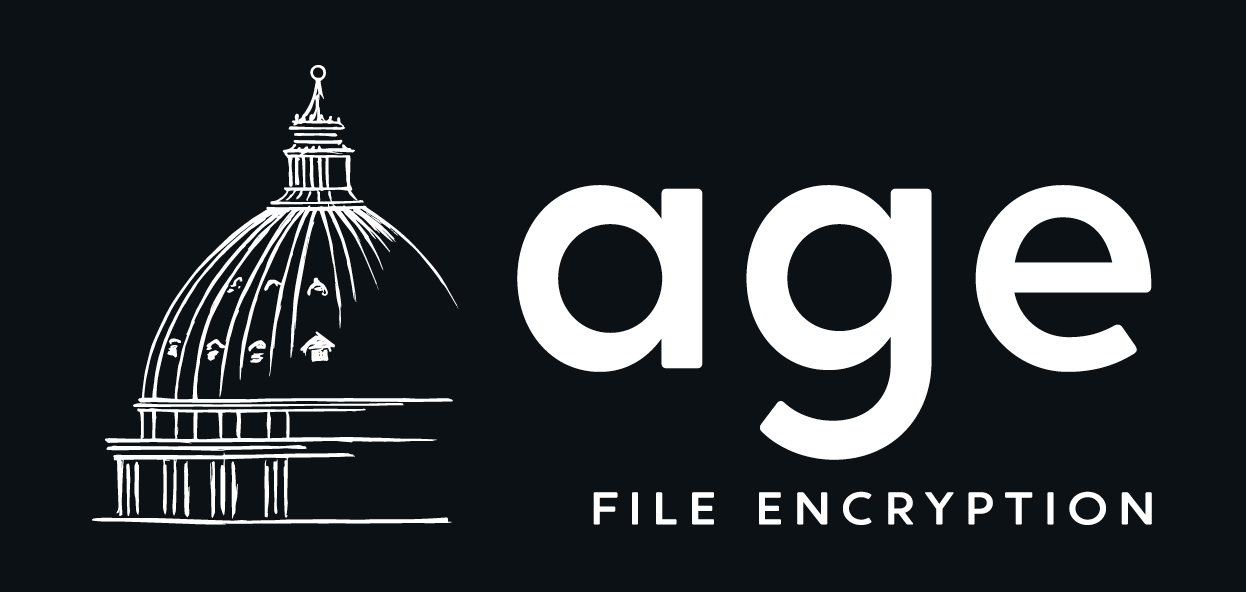Quick start
Prepare keys (on both sides):
[ -f ~/.ssh/id_ed25519 ] && [ -f ~/.ssh/id_ed25519.pub ] || ssh-keygen -t ed25519
scp ~/.ssh/id_ed25519.pub remote:from_remote_side/
Encrypted io.ReadWriteCloser, easy:
// Generate (if not exists) and read ED25519 keys
identity, err := secureio.NewIdentity(`/home/user/.ssh`)
// Read remote identity
remoteIdentity, err := secureio.NewRemoteIdentityFromPublicKey(`/home/user/from_remote_side/id_ed25519.pub`)
// Create a connection
conn, err := net.Dial("udp", "10.0.0.2:1234")
// Create an encrypted connection (and exchange keys using ECDH and verify remote side by ED25519 signature).
session := identity.NewSession(remoteIdentity, conn, nil, nil)
session.Start(context.Background())
// Use it!
// Write to it
_, err = session.Write(someData)
// Or/and read from it
_, err = session.Read(someData)
It's also a multiplexer
Receive
Setup the receiver:
session.SetHandlerFuncs(secureio.MessageTypeChannel(0), func(payload []byte) {
fmt.Println("I received a payload:", payload)
}, func(err error) {
panic(err)
})
Send
Send a message synchronously:
_, err := session.WriteMessage(secureio.MessageTypeChannel(0), payload)
OR
Send a message asynchronously:
// Schedule the sending of the payload
sendInfo := session.WriteMessageAsync(secureio.MessageTypeChannel(0), payload)
[.. your another stuff here if you want ..]
// Wait until the real sending
<-sendInfo.Done()
// Here you get the error if any:
err := sendInfo.Err
// It's not necessary, but helps to reduce the pressure on GC (so to optimize CPU and RAM utilization)
sendInfo.Release()
MessageTypes
A MessageType for a custom channel may be created via function MessageTypeChannel(channelID uint32). channelID is a custom number to identify which flow is it (to connect a sender with appropriate receiver on the remote side). In the examples above it was used 0 as the channelID value, but it could be any value in the range: 0 <= x <= 2**31.
Also there's a special MessageType MessageTypeReadWrite is used for default Read()/Write(). But you may redirect this flow to a custom handler.
Limitations and hints
- Does not support traffic fragmentation. If it's required to make it work over UDP then it's required to disable the fragmentation, see an example for UDP.
- If the underlying writer cannot handle big messages then it's required to adjust
SessionOptions.MaxPayloadSize. - If you don't have multiple writers and you don't need to aggregate messages (see below) then you may set
SessionOptions.SendDelayto&[]time.Duration{0}[0].
Benchmark
The benchmark was performed with communication via an UNIX-socket.
BenchmarkSessionWriteRead1-8 10000 118153 ns/op 0.01 MB/s 468 B/op 8 allocs/op
BenchmarkSessionWriteRead16-8 10000 118019 ns/op 0.14 MB/s 455 B/op 8 allocs/op
BenchmarkSessionWriteRead1024-8 9710 119238 ns/op 8.59 MB/s 441 B/op 8 allocs/op
BenchmarkSessionWriteRead32000-8 6980 173441 ns/op 184.50 MB/s 488 B/op 9 allocs/op
BenchmarkSessionWriteRead64000-8 3994 310038 ns/op 206.43 MB/s 629 B/op 9 allocs/op
BenchmarkSessionWriteMessageAsyncRead1-8 2285032 539 ns/op 1.86 MB/s 0 B/op 0 allocs/op
BenchmarkSessionWriteMessageAsyncRead16-8 2109264 572 ns/op 27.99 MB/s 2 B/op 0 allocs/op
BenchmarkSessionWriteMessageAsyncRead1024-8 480385 2404 ns/op 425.87 MB/s 15 B/op 0 allocs/op
BenchmarkSessionWriteMessageAsyncRead32000-8 30163 39131 ns/op 817.76 MB/s 162 B/op 5 allocs/op
BenchmarkSessionWriteMessageAsyncRead64000-8 15435 77898 ns/op 821.59 MB/s 317 B/op 10 allocs/op
This package is designed to be asynchronous, so basically Write is an stupid wrapper around code of WriteMessageAsync. To get more throughput it merges all your messages collected in 50 microseconds into a one, sends, and then splits them back. It allows to reduce amount of syscalls and other overheads. So to achieve like 1.86MiB/s on 1-byte messages you need to send a lot of them asynchronously (from each other), so they will be merged while sending/receiving through the backend connection.
Also this 800MiB/s is more about the localhost-case. And more realistic network case (if we have MTU ~= 1400) is:
BenchmarkSessionWriteMessageAsyncRead1300_max1400-8 117862 10277 ns/op 126.49 MB/s 267 B/op 10 allocs/op
Security design
Key exchange
The remote side is authenticated by a ED25519 signature (of the key exchange message).
Key exchange is performed via ECDH with X25519. If a PSK is set, then it is PSK concatenated with a constant salt-value, hashed with blake3.Sum256 and sha3.Sum256 and used to XOR the (exchanged) key.
The resulting value is used as the encryption key for XChaCha20. This key is called cipherKey within the code.
The key (received via ECDH) is updated every minute. So in turn the cipherKey is updated every minute as well.
Encryption
A SessionID is exchanged by the very first key-exchange messages. SessionID is a combination of UnixNano (of when the Session was initialized) and random 64-bit integer.
Also each packet starts with an unique (for a session) plain-text PacketID (actually if PSK is set then PacketID encrypted with a key derived as a hash of a salted PSK).
The combination of PacketID and SessionID is used as IV/NONCE for XChaCha20 and cipherKey is used as the key.
Worth to mention that PacketID is intended to be unique only within a Session. So it just starts with zero and then increases by 1 for each next message. Therefore if the system clock is broken then uniqueness of NONCE is guaranteed by 64-bit random value of SessionID.
Message authentication
Message authentication is done using Poly1305. As key for Poly1305 used a blake3.Sum256 hash of:
PacketID is supposed to be increasing only. Received PacketID are remembered in a limited window of values. If it was received a packet with the same PacketID (as it already was) or with a lesser PackerID (than the minimal possible value in the window) then the packet is just ignored.
Session states
A successful session with the default settings goes through states/phases/stages:
- Initialization
- Key exchanging
- Negotiation
- Established
- Closing
- Closed
Initialization
This is the stage where all the options are parsed and all the required goroutines are being initialized.
After that *Session will be switched to the "Key Exchanging" state.
Key exchanging
At this stage both parties (the local one and the remote one) are exchanging with ECDH public keys to get a symmetrical shared key (see "Security Design").
Also if a remote identity is set then we verify if it matches, and ignores any key-exchange messages with any other ED25519 public keys (don't confuse with ECDH public key): ED25519 keypairs are static for each party (and usually pre-defined), while ECDH keypairs are generated for each key exchange.
Also each key-exchanging key is verified by the public key (passed with the message).
With the default settings, each party also sends acknowledgement messages to verify if the messages was received and percieved. And (with the default settings) each party waits for a acknowledgment message from the remote side (see also SessionOptions.AnswersMode).
If everything is successful here then the *Session goes to the "Negotiation" phase. But the key exchanging process is still periodically performed in background.
Negotiation
At this stage we try to determine which size of packets the underlying io.Writer can handle. So we try to send packets of 3 different sizes and look which of them will be able to make a round trip. Then repeat the procedure in a shorter interval. And so on up to 4 times.
This behavior could be enabled or disabled through SessionOptions.NegotiatorOptions.Enable.
When this procedure will be finished (or if it is disabled), then the *Session is switched to the state "Established".
Established
This is the state in which the *Session is operating normally, so you may send and receive messages through it. And messages attempted to be sent before reaching this stage will be sent as soon as *Session will reach this stage.
Closing / Closed
Closing is a transitional state before becoming Closed. If state Closed is reached it means the session is dead and nothing will ever happen to it anymore.
TODO
- support of fragmented/merged (by backend) traffic.
- check keyCreatedAt
- error if key hasn't changed
- verify TS difference sanity
- don't use
Asyncfor sync-writes. - route messenger-related errors to the messenger's handler.
- more comments (in the code)
- consider
notewakeupinstead ofCond.Wait
I'm not sure if we need
- download key-files by URLs

